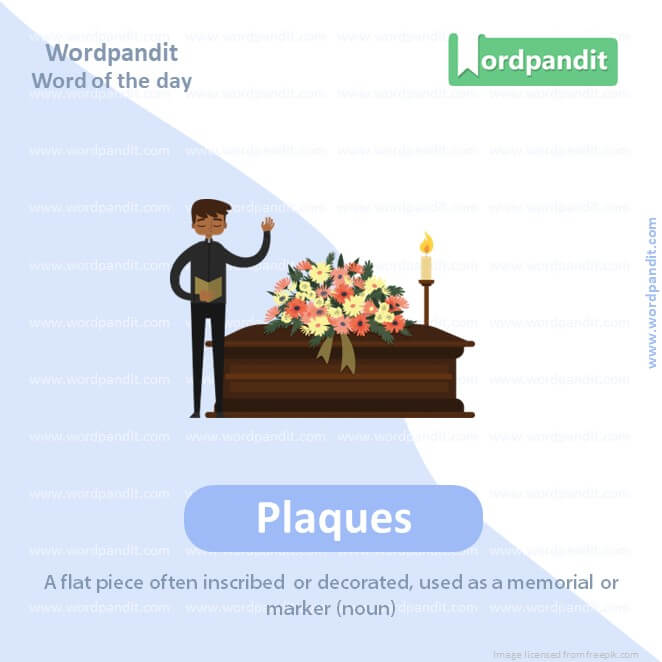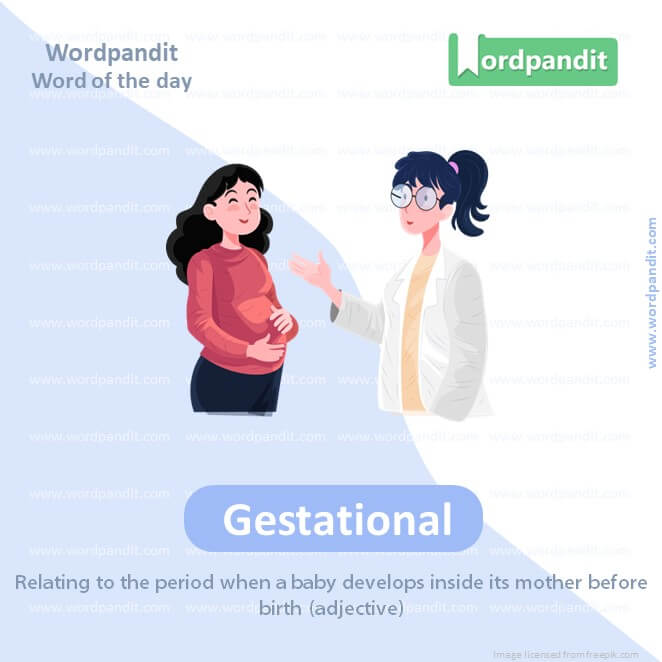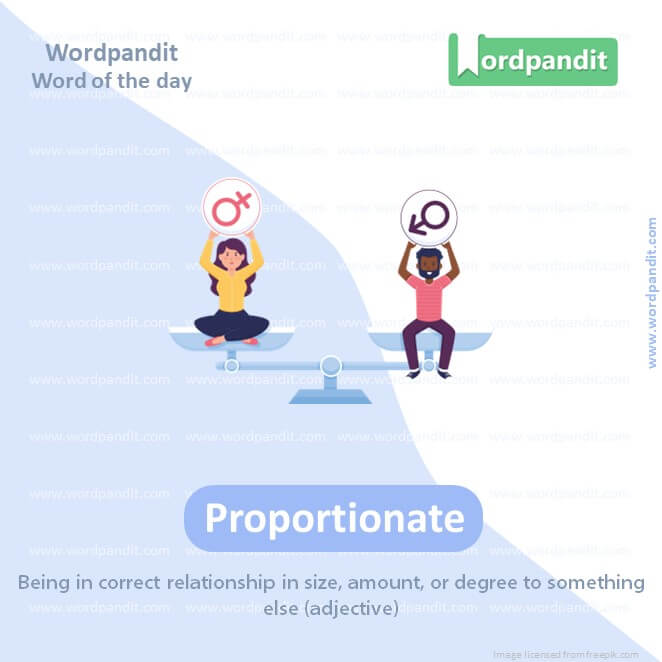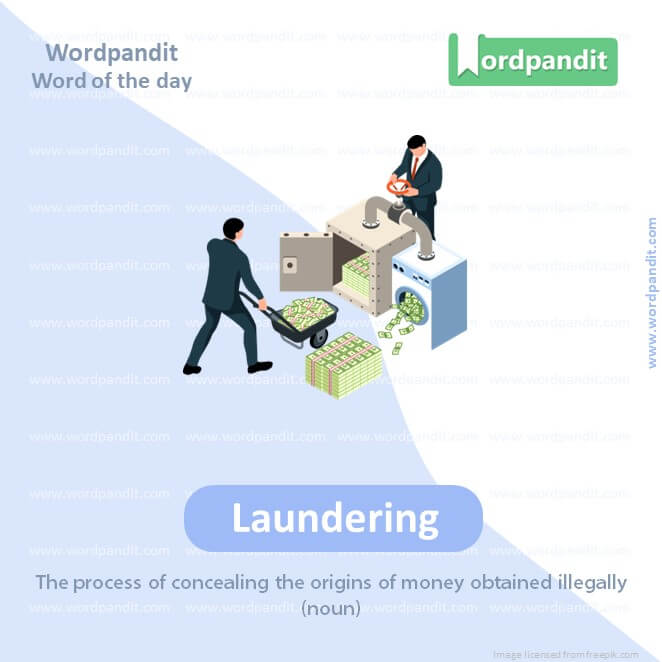Daily Vocabulary Words: List of Daily Used Words
Hi there. Welcome to this special section @ Wordpandit.
Our endeavour here is straightforward: highlighting important daily vocabulary words, you would encounter in The Hindu. This is your repository of commonly used words; essentially, we are posting a list of daily used words. Hence, this has significant practical application as it teaches you words that are commonly used in a leading publication such as The Hindu.
Visit the website daily to learn words from The Hindu.

WORD-1: Pavements
CONTEXT: making way for safe walking and biking lanes, pavements and no-car zones, can help not only improve physical activity and reduce sedentary lifestyles but also reduce the risk from air pollution.
SOURCE: The Hindu
EXPLANATORY PARAGRAPH: Pavements are the hard, flat surfaces you walk on when you’re outside, like sidewalks. It’s where you walk when you’re not on the grass or the road where cars drive.
MEANING: A surface for pedestrians, typically a walkway alongside a street (noun).
PRONUNCIATION: PAYV-ments
SYNONYMS: Sidewalk, Walkway, Footpath, Pathway, Promenade
USAGE EXAMPLES:
1. Children were drawing with chalk on the pavement.
2. People walked their dogs on the pavement every morning.
3. The pavement was slippery after the rain.
4. The city decided to repair the cracked pavement.

WORD-2: Plaques
CONTEXT: The Visva Bharati University authorities have called the plaques temporary and the crisis unwanted.
SOURCE: The Hindu
EXPLANATORY PARAGRAPH: Plaques are like special signs or flat pieces, usually made of metal or wood, that have writing on them. They can be used to remember someone or something important.
MEANING: A flat piece often inscribed or decorated, used as a memorial or marker (noun).
PRONUNCIATION: plaks
SYNONYMS: Tablet, Memorial, Inscription, Marker, Commemoration
USAGE EXAMPLES:
1. The museum wall had plaques describing each exhibit.
2. They unveiled a plaque to honor the founder.
3. A bronze plaque marked the historic site.
4. Each award was a small, engraved plaque.
WORD-3: Embroiled
CONTEXT: The central university administration is embroiled in a legal tussle with Prof Sen.
SOURCE: The Hindu
EXPLANATORY PARAGRAPH: When someone is embroiled in something, it means they are very much involved in a difficult or complicated situation, like being in the middle of a big argument.
MEANING: To become deeply involved in a conflict or difficult situation (verb).
PRONUNCIATION: em-BROILD
SYNONYMS: Entangled, Involved, Mired, Enmeshed, Entwined
USAGE EXAMPLES:
1. She was embroiled in a legal battle.
2. The politician became embroiled in a scandal.
3. The two companies were embroiled in a lawsuit.
4. He tried to avoid getting embroiled in office politics.

WORD-4: Gestational
CONTEXT: The couple had begun the process of gestational surrogacy, through a donor, on December 7 last year.
SOURCE: The Hindu
EXPLANATORY PARAGRAPH: Gestational is a word that has to do with pregnancy. It’s about the time when a baby is growing inside its mother before it’s born.
MEANING: Relating to the period when a baby develops inside its mother before birth (adjective).
PRONUNCIATION: jes-TAY-shun-ul
SYNONYMS: Prenatal, Antenatal, Maternal, Fetal, Conceptional
USAGE EXAMPLES:
1. The gestational period for humans is about nine months.
2. She had gestational diabetes during pregnancy.
3. Gestational age is important for the baby’s development.
4. The study focused on gestational health.
WORD-5: Speculation
CONTEXT: The guest list has been a matter of speculation with reports that several G7 heads of government
SOURCE: The Hindu
EXPLANATORY PARAGRAPH: Speculation is when you guess about something without having all the facts. It’s like trying to figure out a mystery without knowing all the clues.
MEANING: The act of forming a theory or conjecture without firm evidence (noun).
PRONUNCIATION: spek-yuh-LAY-shun
SYNONYMS: Guessing, Conjecture, Hypothesis, Theory, Supposition
USAGE EXAMPLES:
1. There’s a lot of speculation about the new movie’s plot.
2. Her disappearance caused much speculation in the media.
3. The stock market is often driven by speculation.
4. He dismissed the rumors as mere speculation.

WORD-6: Proportionate
CONTEXT: Digging deeper into the data reveals that the proportionate contribution of gross total income of top 1% individual taxpayers
SOURCE: The Hindu
EXPLANATORY PARAGRAPH: Proportionate means having the right size or amount compared to something else. Like when you get a slice of cake, it should be a good size for you, not too big or too small.
MEANING: Being in correct relationship in size, amount, or degree to something else (adjective).
PRONUNCIATION: pro-POR-shun-it
SYNONYMS: Proportional, Commensurate, Corresponding, Equivalent, Balanced
USAGE EXAMPLES:
1. The punishment should be proportionate to the crime.
2. She received a proportionate share of the inheritance.
3. The model was built to a proportionate scale.
4. His response was not proportionate to the situation.

WORD-7: Laundering
CONTEXT: The Enforcement Directorate’s raids on the premises of two Congress leaders as part of a money laundering probe
SOURCE: The Hindu
EXPLANATORY PARAGRAPH: Laundering is like cleaning, but it’s used to talk about money. It means making money that was gotten in a bad way (like stealing) look like it was earned honestly.
MEANING: The process of concealing the origins of money obtained illegally (noun).
PRONUNCIATION: LAWN-dur-ing
SYNONYMS: Washing, Cleansing, Purifying, Sanitizing, Legitimizing
USAGE EXAMPLES:
1. The businessman was accused of money laundering.
2. Laundering illegal funds is a serious crime.
3. The investigation revealed a complex laundering scheme.
4. New laws were introduced to combat laundering.
WORD-8: Unleashing
CONTEXT: the Chief Minister slammed the BJP government at the Centre, accusing it of unleashing terror in the country.
SOURCE: The Hindu
EXPLANATORY PARAGRAPH: Unleashing is like letting something go free or letting it out. Imagine opening a gate and letting a bunch of animals run out into a field. That’s like unleashing.
MEANING: To release from a restraint or let loose (verb).
PRONUNCIATION: un-LEESH-ing
SYNONYMS: Releasing, Liberating, Setting Free, Unchaining, Unloosing
USAGE EXAMPLES:
1. The new policy is unleashing a lot of changes.
2. He’s unleashing his creativity in his new project.
3. The storm unleashed its fury on the coast.
4. The company is unleashing a new marketing campaign.
WORD-9: Gripped
CONTEXT: Tension have gripped a Hapur village after a 25-year-old Muslim youth was beaten to death by an angry mob on Tuesday.
SOURCE: The Hindu
EXPLANATORY PARAGRAPH: Gripped means holding onto something really tightly. Like when you hold your toy so no one can take it away, you are gripping it.
MEANING: To hold tightly or to capture the attention completely (verb).
PRONUNCIATION: gripd
SYNONYMS: Clasped, Held, Grasped, Clutched, Seized
USAGE EXAMPLES:
1. She gripped the railing tightly.
2. The mystery movie gripped the audience.
3. He gripped the pen in his hand.
4. Fear gripped the town after the incident.
WORD-10: Clinched
CONTEXT: Asian Para Games as he clinched the top spot in men’s T11 1500m race with a time of 4:27.70. He had also won a gold in men’s men’s T11 5000m race on Tuesday.
SOURCE: The Hindu
EXPLANATORY PARAGRAPH: Clinched is like making sure something is definitely going to happen. It’s like when you win a game and you know for sure you’re going to get a trophy.
MEANING: To confirm or settle something decisively (verb).
PRONUNCIATION: klincht
SYNONYMS: Secured, Sealed, Finalized, Confirmed, Ensured
USAGE EXAMPLES:
1. He clinched the deal with a handshake.
2. Her team clinched the championship.
3. The actor clinched the award with his performance.
4. They clinched a victory in the final minutes of the game.
Vocabulary Daily Use Words
In the architecturally diverse world of language learning, ‘vocabulary daily use words’ act as a cornerstone. We often take these words for granted, but their significance in day-to-day communications is nothing short of monumental. Mastering these ‘vocabulary daily use words’ should be more than an ancillary task on the sideline; it should take the center stage in your language learning journey.
To begin with, approach ‘vocabulary daily use words’ with the same gusto and reverence as you would an untapped treasure chest. Go beyond the conventional realm of textbooks and explore the world of contemporary literature, newspapers, and digital content. By immersing yourself in these mediums, you’re aligning your learning with real-world language usage, thereby gaining a practical understanding of ‘vocabulary daily use words.’
Memory-enhancing tools add an extra layer of effectiveness to your learning. Flashcards, for example, are a great way to make your study sessions interactive and memory-forging. Coupled with the Leitner system, which is a principle of spacing and repetition, you can ensure better recall and understanding of ‘vocabulary daily use words.’
Furthermore, leveraging mnemonic devices aids in etching the ‘vocabulary daily use words’ into your memory. Associating common words with unique and memorable narratives in your mind enhances their recall. Regular revision and using these words in routine conversations further cement your proficiency.
The potency of immersion as a language learning strategy cannot be emphasized enough. Conversing with native speakers, if possible, provides context to ‘vocabulary daily use words’ and boosts your fluency.
In conclusion, mastering the ‘vocabulary daily use words’ is an enriching journey that requires ongoing effort, continual exposure, and hands-on practice. The strategy of learning through various mediums, using memory-enhancing techniques, leveraging mnemonic devices, and immersion can help demystify these words and enhance your overall language proficiency. So, gear up and embrace the linguistic adventure of mastering the ‘vocabulary daily use words.’











